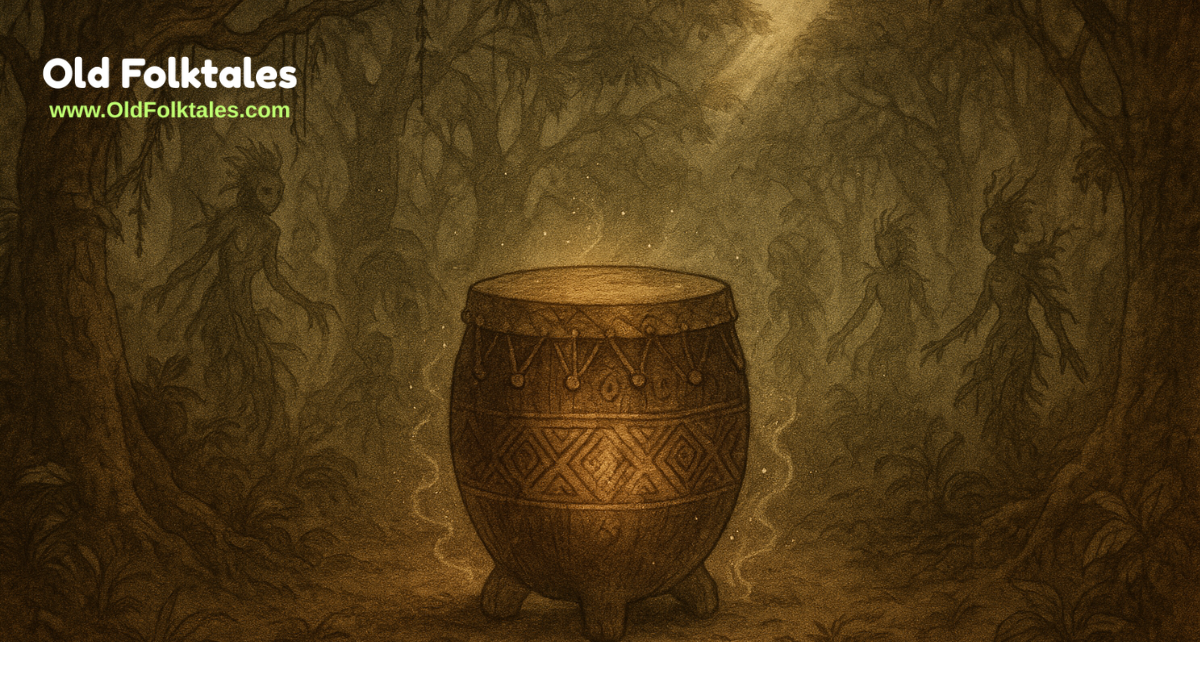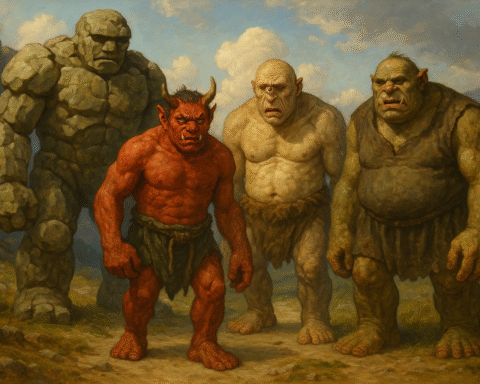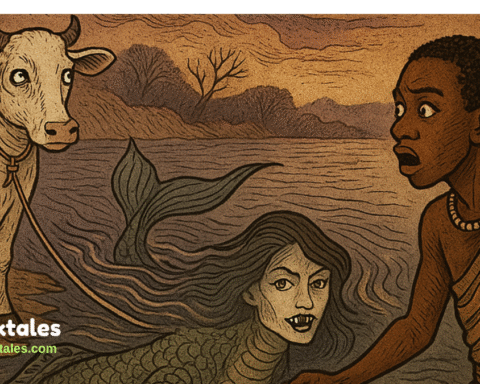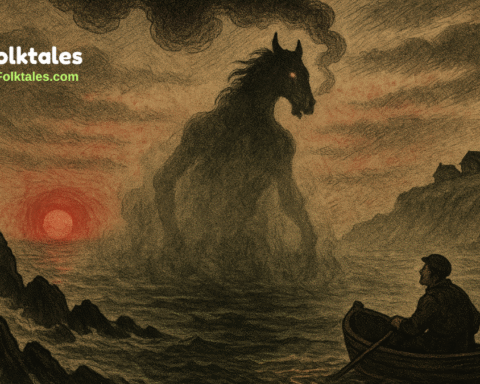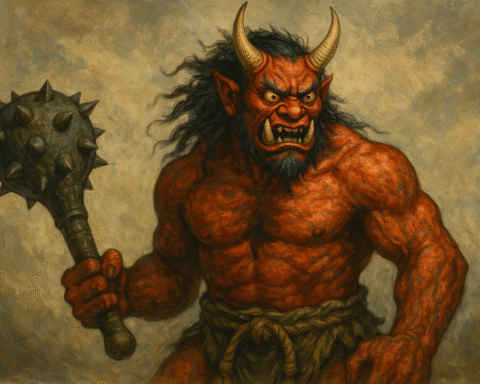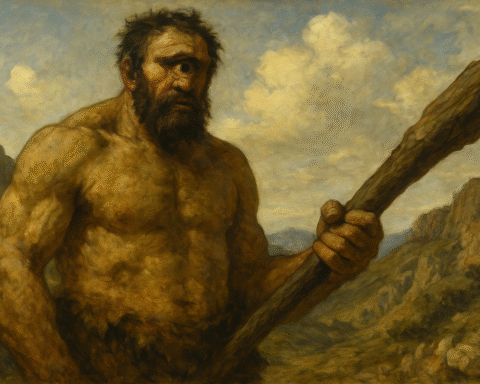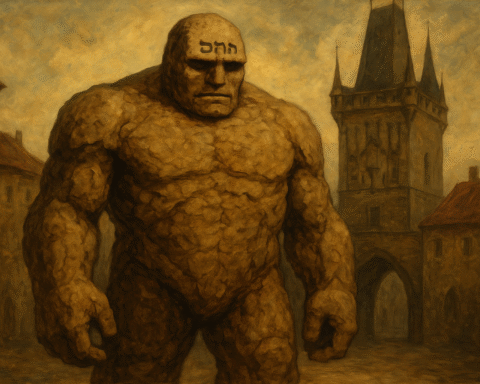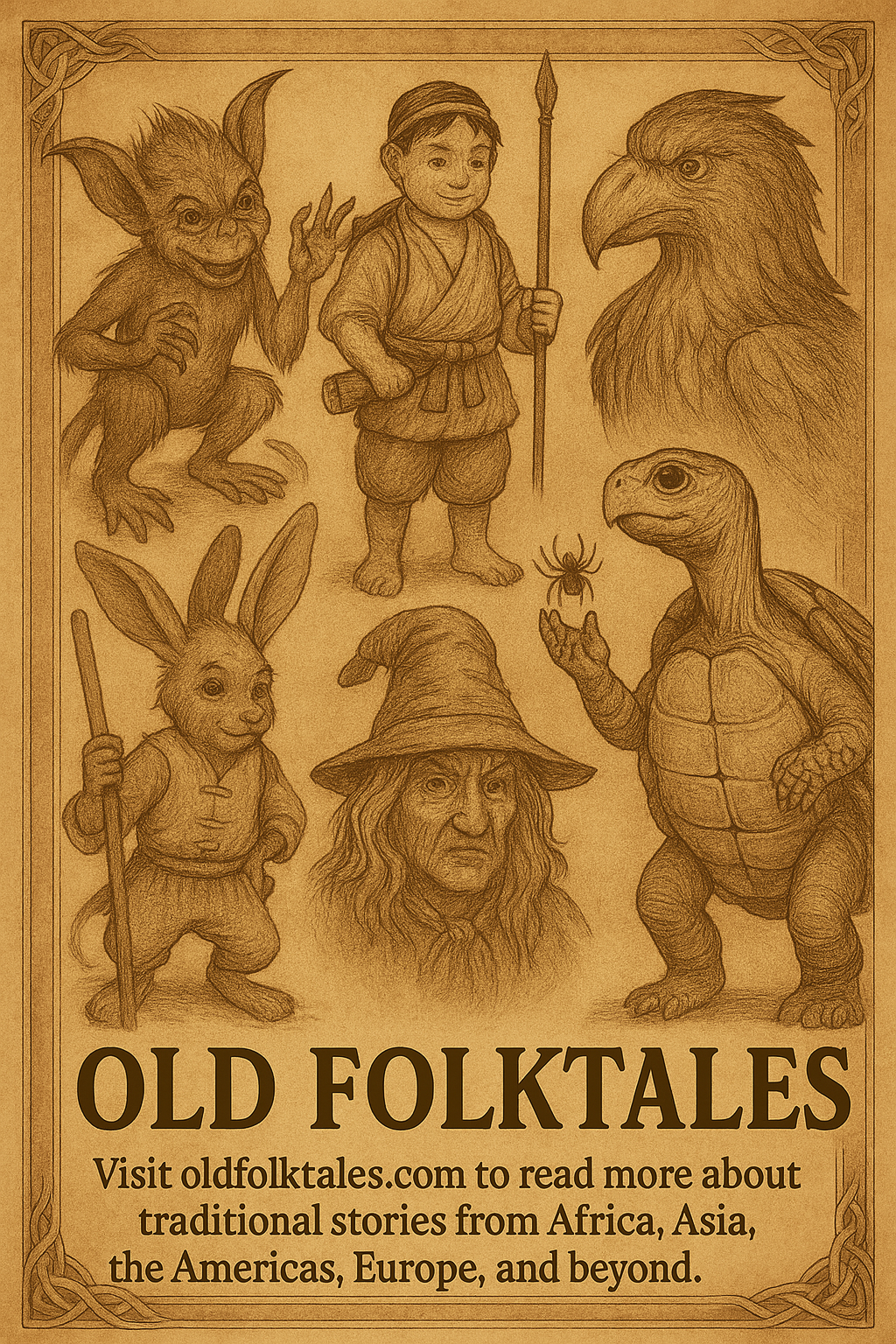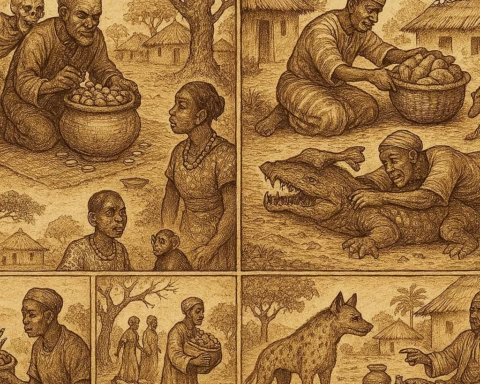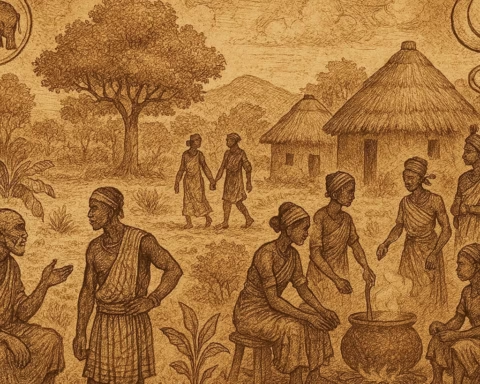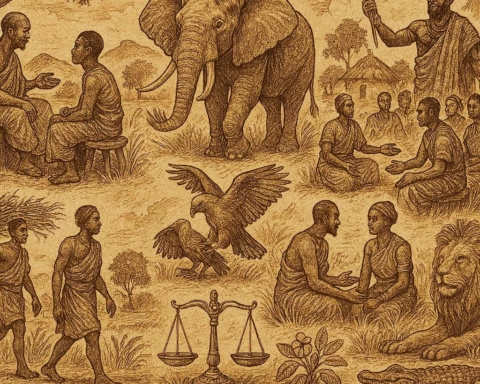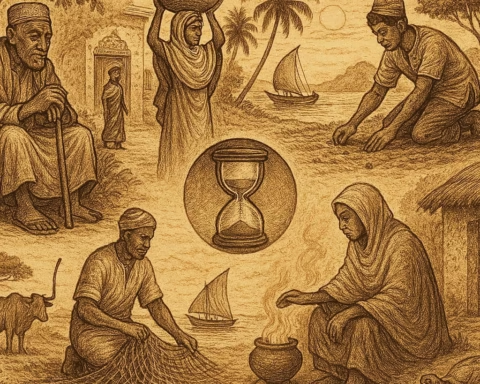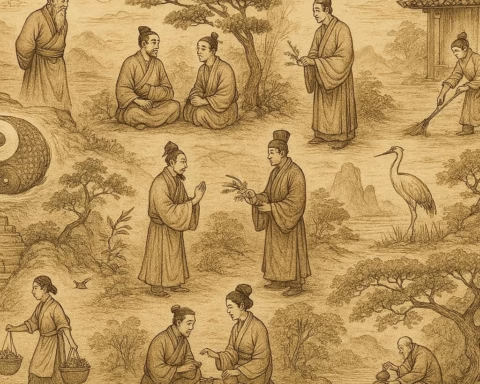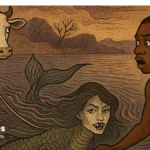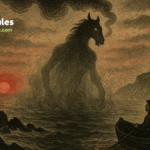Long ago, in the green heart of the Bakossi highlands of Cameroon, there was a forest that whispered. The trees did not just rustle, they spoke, and the spirits of ancestors walked among their roots. This was the Bakossi Forest, sacred ground where no one dared to build, hunt, or harvest without permission from the elders.
Within this forest lay a drum carved from iroko wood, wrapped in antelope skin and said to hold the power of the ancestral world. It was known only as Ekong, the Drum of Echoes. No one played it unless chosen by the elders, for its rhythm could awaken spirits and stir forgotten magic.
In the nearby village of Ndem, a boy named Ntoko grew up with stories of the drum. He was curious, clever, and proud—traits that made him both admired and feared. Ntoko believed that the elders were holding back power from the younger generation. One evening, after overhearing that the sacred drum would be taken to the forest shrine for a ritual, he made a bold decision.
He would find the drum and play it.
The Forbidden Beat
That night, under the full moon, Ntoko slipped away from the village and crept into the forest. The paths twisted unnaturally, vines brushed his face like fingers, and owls stared longer than they should. Still, he pressed on until he reached the shrine.
There it was, Ekong, resting on a raised stone, untouched by time.
With trembling fingers and a heartbeat that pounded louder than any rhythm, Ntoko raised his hands and struck the drum.
BOOM.
The sound did not echo, it surged.
The trees shook. The sky darkened. The wind howled through the forest like a thousand voices mourning at once. From the shadows emerged Awo, the guardian spirit of the Bakossi Forest. Half-smoke, half-beast, Awo wore a crown of dried roots and carried the scent of rain and rot.
“You were not called,” the spirit rumbled.
Ntoko dropped the drumstick. “I wanted to prove I was worthy,” he said, eyes wide with fear.
“Worth is not stolen. It is given,” Awo answered.
The spirit raised a long arm, and with a wave, vines slithered out from the ground and bound Ntoko’s ankles. But Awo did not harm him. Instead, the spirit whispered a chant, and a mark appeared on Ntoko’s ches, a spiral, glowing green.
“You shall carry the song of the forest for all your days,” Awo said. “You will remember what you have disturbed.”
A Drumbeat That Never Ends
When Ntoko awoke, he was back at the edge of the village. No one believed his story, but from that day forward, he heard the drumbeat wherever he went. In sleep, in silence, in celebration, it followed him.
Over time, he learned to live with the rhythm. He began to teach others to respect the land, to honor tradition, and to seek wisdom before power. He never entered the forest again, but children gathered around him to hear stories of what lies beyond the trees.
Ntoko had become the drum.
Moral Lesson of The Drum of the Bakossi Forest
The story of The Drum of the Bakossi Forest teaches that true power cannot be taken, it must be earned through patience, humility, and respect for tradition. When we rush toward what we do not understand, we risk disturbing forces that are meant to guide us, not serve us. In honoring the wisdom of elders and the spirits of the past, we protect the balance between the human and the unseen.
Knowledge Check – The Drum of the Bakossi Forest
- What is the moral of the folktale “The Drum of the Bakossi Forest”?
The story teaches a lesson about respect and humility, showing how seeking power without understanding can lead to lifelong consequences. - What cultural group does the tale “The Drum of the Bakossi Forest” come from?
This folktale originates from the Bakossi people of Cameroon. - Why did Ntoko play the sacred drum in “The Drum of the Bakossi Forest”?
In the story, Ntoko played the sacred drum out of pride and curiosity, which led to his encounter with the forest spirit. - How does the folktale “The Drum of the Bakossi Forest” explain spiritual belief?
The story gives a traditional explanation for how ancestral spirits protect sacred places and punish those who disrupt the natural balance. - Is “The Drum of the Bakossi Forest” a ghost story, origin tale, trickster story, or spirit tale?
“The Drum of the Bakossi Forest” is a spirit tale, reflecting the Bakossi people’s beliefs about ancestral power and sacred forests. - Why is the tale “The Drum of the Bakossi Forest” still meaningful to modern readers?
The story continues to resonate because it warns against recklessness and highlights the value of cultural respect and humility in a timeless way.
Cultural Origin: This folktale comes from the traditional beliefs and storytelling practices of the Bakossi people of Cameroon.
